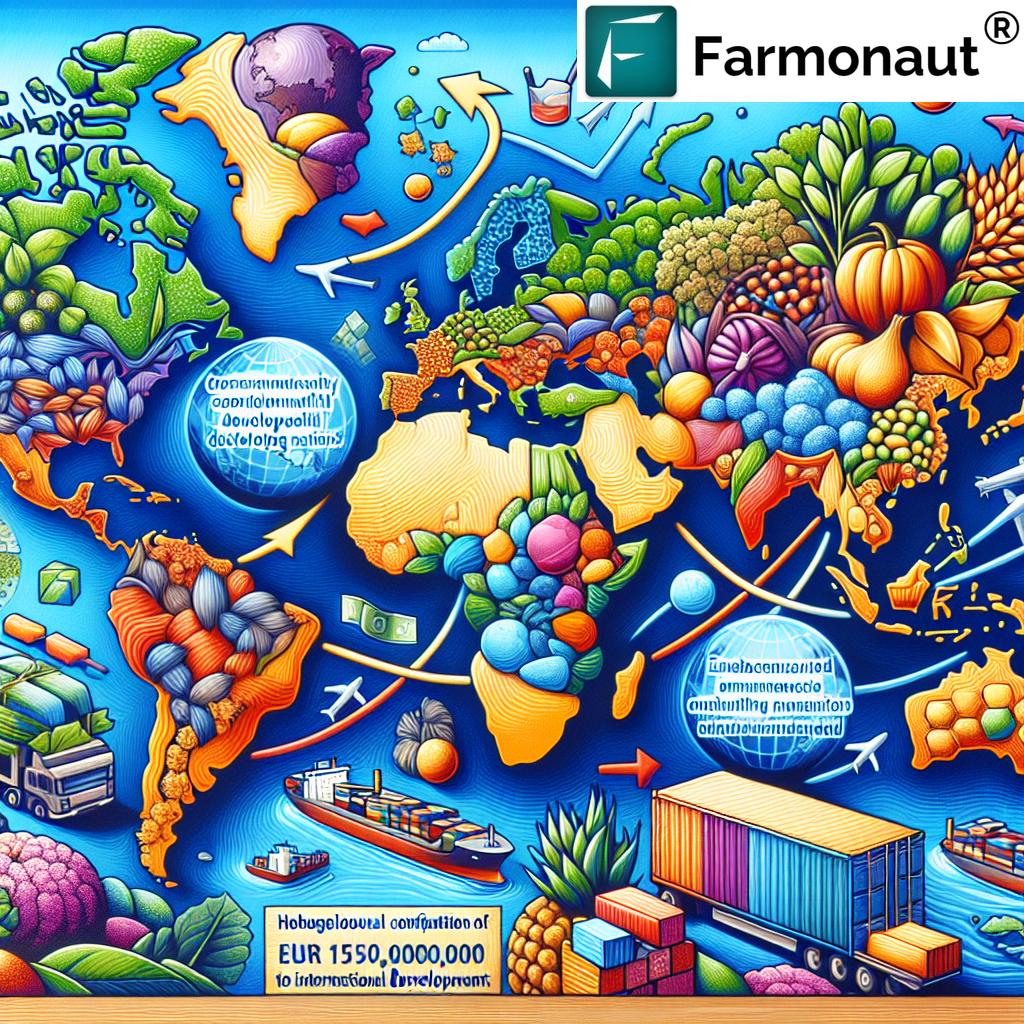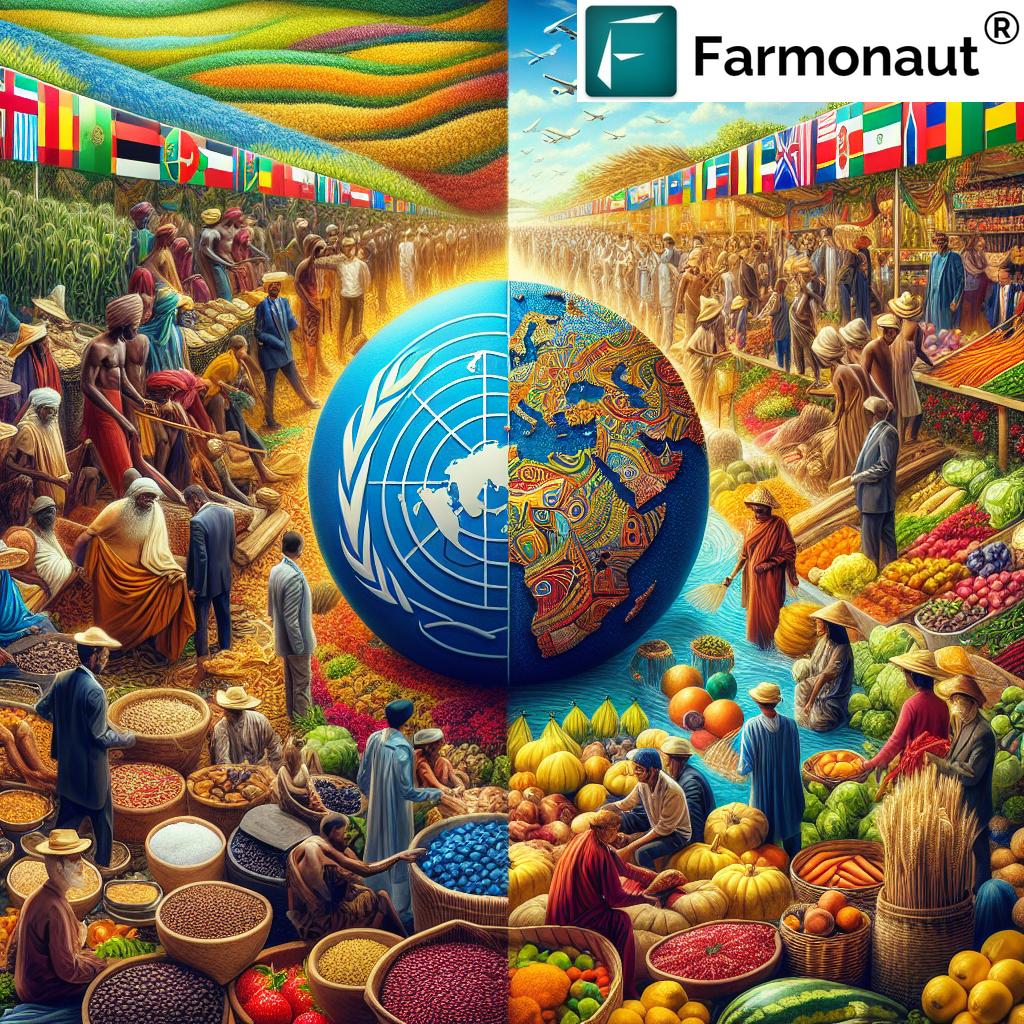Unleashing Global Trade: Germany’s Bold Move to Empower Developing Nations’ Agricultural Markets

In a landmark move set to transform global agricultural markets, Germany has pledged EUR 150,000 (approximately CHF 140,000) for the year 2024 to the Standards and Trade Development Facility (STDF). This significant Germany agricultural aid WTO initiative aims to bolster developing economies and least-developed countries (LDCs) in their quest to enhance sanitary and phytosanitary (SPS) capacity, ultimately facilitating their participation in international trade.
The Power of STDF Funding in Developing Economies
The STDF funding developing economies receive is pivotal in addressing the challenges faced by these nations in meeting international trade standards. This financial boost is expected to:
- Improve access to global and regional markets
- Contribute to sustainable economic growth
- Enhance food security
- Aid in poverty reduction
The World Trade Organization (WTO) has emphasized the importance of this contribution in a recent statement. It underscores Germany’s commitment to WTO trade development initiatives, particularly in empowering developing nations to maximize the benefits of international trade.
Sanitary and Phytosanitary Standards: A Gateway to Global Markets
At the core of this initiative lies the emphasis on sanitary phytosanitary standards trade. These standards are crucial for ensuring food safety and plant and animal health in international trade. By helping developing countries meet these standards, Germany’s aid paves the way for:
- Enhanced global market access for LDCs
- Improved quality of agricultural exports
- Increased competitiveness in the global marketplace
- Better protection against the spread of pests and diseases
The implementation of these standards is not just about trade; it’s about ensuring food security through international trade. As developing nations improve their ability to meet these standards, they open doors to new markets and opportunities for their farmers and producers.
SPS Capacity Building: A Key to Sustainable Growth
SPS capacity building developing countries receive through this funding is instrumental in creating a sustainable framework for agricultural trade. This capacity building includes:
- Technical training for government officials
- Upgrading of laboratory facilities
- Implementation of modern inspection techniques
- Development of risk assessment methodologies
These efforts collectively contribute to sustainable economic growth agriculture, enabling developing nations to participate more actively and competitively in global agricultural markets.

Germany’s Commitment to Global Agricultural Development
The signing of the Memorandum of Understanding (MOU) by Germany’s Ambassador to the WTO, Carmen Heidecke, marks a continuation of Germany’s long-standing support for agricultural development in the global south. This commitment is evident in the following statistics:
- Total donations to STDF since 2006: CHF 10.6 million
- Contributions to various WTO trust funds over 25 years: CHF 38.5 million
These figures underscore Germany’s role as a key player in promoting developing economies market access and fostering inclusive global trade.
For farmers and agricultural professionals looking to leverage technology in their operations, Farmonaut’s API offers cutting-edge solutions. Explore the API Developer Docs for more information.
The STDF: A Global Partnership for Safe and Inclusive Trade
The STDF is more than just a funding mechanism; it’s a global multi-stakeholder partnership that brings together key international organizations:
- Food and Agriculture Organization of the United Nations
- World Organisation for Animal Health
- World Bank Group
- World Health Organization
- World Trade Organization (which houses and manages the partnership)
This collaborative approach ensures that the STDF funding is utilized effectively, addressing the evolving needs of developing economies in the context of global trade.
Impact on Food Security and Poverty Reduction
The WTO emphasizes that this initiative goes beyond mere trade facilitation. It directly contributes to the United Nations Sustainable Development Goals by:
- Enhancing food security trade dynamics
- Supporting poverty reduction efforts
- Promoting inclusive economic growth
By improving the ability of developing countries to participate in global agricultural markets, this initiative has the potential to impact thousands of farmers positively, improving livelihoods and food security at both local and global levels.
The Road Ahead: Challenges and Opportunities
While Germany’s contribution marks a significant step forward, the journey towards fully integrating developing economies into global agricultural markets faces several challenges:
- Continued investment in infrastructure and technology
- Addressing climate change impacts on agriculture
- Navigating complex international trade standards
- Balancing trade liberalization with local market protection
However, these challenges also present opportunities for innovation and collaboration. As developing countries enhance their SPS capacities, they not only improve their trade prospects but also contribute to global food safety and security.
Conclusion: A Step Towards a More Inclusive Global Economy
Germany’s pledge to the STDF represents more than just financial aid; it’s a testament to the power of international cooperation in addressing global challenges. By focusing on SPS capacity building and improving access to global markets, this initiative paves the way for a more inclusive and sustainable global agricultural trade system.
As WTO Director-General Ngozi Okonjo-Iweala noted, this contribution will allow developing countries and LDCs to participate more actively in global agricultural markets, benefiting thousands of farmers. It’s a clear example of how targeted aid can create ripple effects, fostering economic growth, enhancing food security, and contributing to poverty reduction on a global scale.
In the evolving landscape of international trade, initiatives like this are crucial in ensuring that the benefits of globalization are shared more equitably. As developing nations strengthen their capacity to meet international standards, they not only gain access to new markets but also contribute to a more resilient and diverse global food system.
The journey towards fully inclusive global trade is ongoing, but with continued support and collaboration, the vision of a world where all nations can participate equally in agricultural markets is becoming increasingly achievable.


